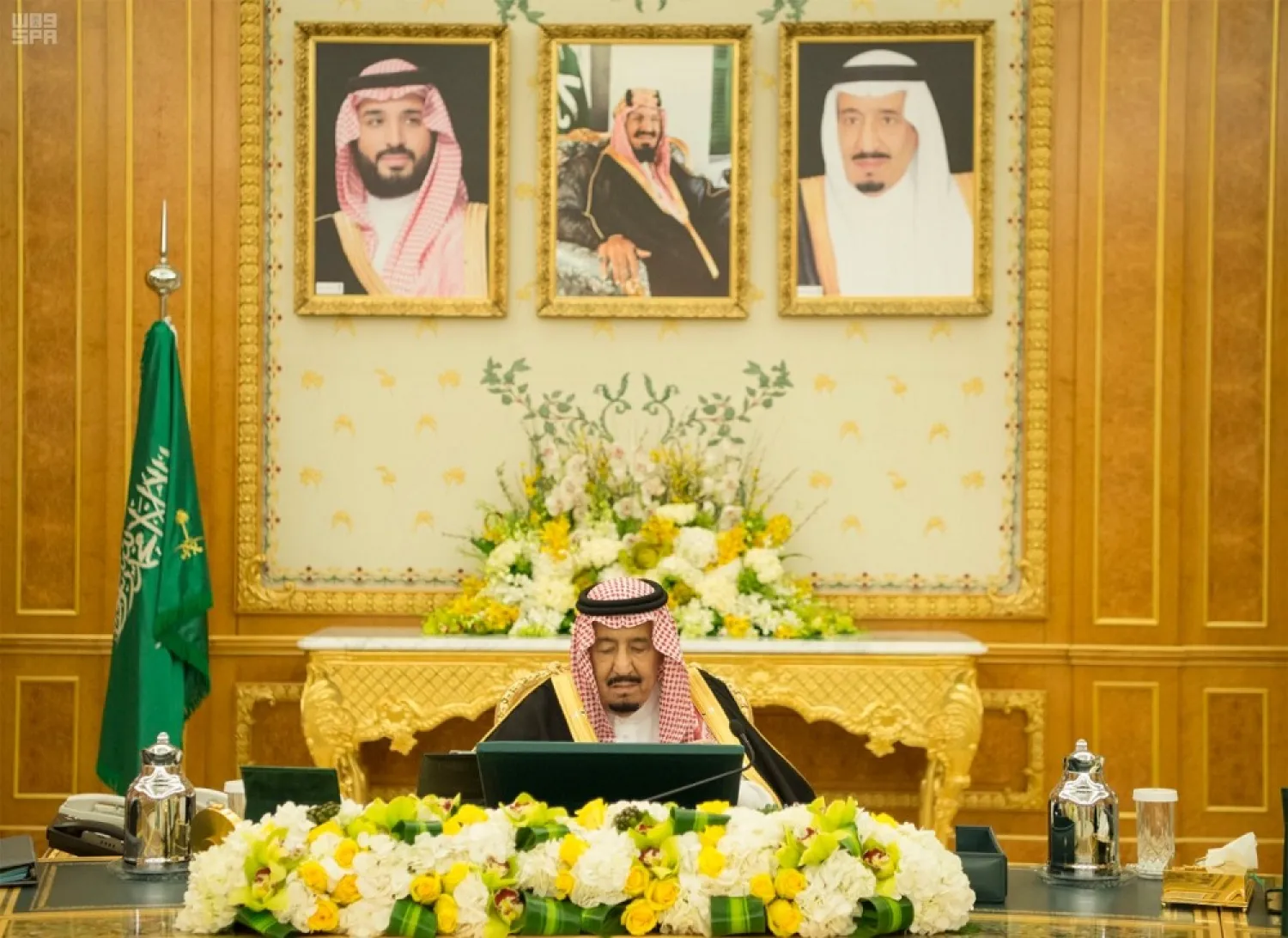Custodian of the Two Holy Mosques King Salman bin Abdulaziz issued a Royal Decree on Monday that approved the document on improving the Defense Ministry, reported the Saudi Press Agency.
The document includes the vision and strategy of the ministry's developing program, the operational pattern targeting its development, the organizational structure, governance, and human resources requirements which were drafted in line with the national defense strategy.
The decree also included the appointment, promotion and retirement of a number of officials:
- General Abdulrahman al-Bunyan was referred to retirement after completing his service as chief of staff.
- Fayyad al-Ruweili was promoted and appointed chief of staff.
- Commander of the air defense forces Mohammed Sahim was referred to retirement after completing his service.
- Commander of the land forces Fahd bin Turki bin Abdulaziz was relieved of his duties and appointed commander of the joint forces.
- Prince Fahd bin Badr bin Abdulaziz was relieved of his post as Governor of Al-Joaf Region upon his request. Prince Badr bin Sultan bin Abdulaziz was appointed as the new Governor in the rank of minister.
- Prince Fahd bin Badr bin Abdulaziz was appointed Advisor to the Custodian of the Two Holy Mosques in the rank of minister.
- Prince Faisal bin Turki bin Abdulaziz was appointed Consultant at the Royal Court in the rank of minister.
- Prince Turki bin Talal bin Abdulaziz was appointed Deputy Governor of the Asir Region in the rank of minister.
- Dr. Khalid bin Hussein bin Saleh Biary was appointed Assistant Ministry of Defense for Executive Affairs at the excellent rank.
- Prince Faisal bin Fahd bin Miqren bin Abdulaziz was appointed Deputy Governor of Hail Region in the rank of minister.
- Dr. Ahmed bin Mohammed Alsalim was relieved of his duties as deputy minister of interior.
- Dr. Ahmed bin Mohammed Alsalim was relieved of his duties as member of the Council of Economic Affairs and Development.
- Prince Sultan bin Ahmed bin Abdulaziz was appointed Consultant at the Royal Court in the excellent rank.
- Prince Dr. Bandar bin Abdullah Almshari was appointed Assistant Minister of Interior for Technology Affairs at the Excellent Rank.
- Hamad bin Khalaf Alrashid Alkhalaf was relieved of his duty as undersecretary of the Ministry of Interior for security affairs. He was replaced with Mohammad bin Mohanna bin Abdulaziz Almohanna at the excellent rank.
- Ibrahim bin Mohammed bin Ibrahim Alsultan was appointed advisor at the Royal Court with rank of minister.
- Ahmed bin Abdulaziz Qattan was appointed Minister of State for African Countries Affairs in the rank of minister at the Foreign Ministry.









